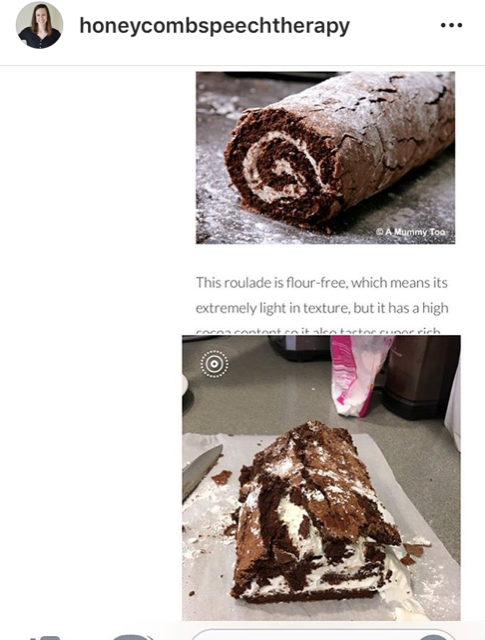In honor of BETTER Speech & Hearing Month, I am tackling some answers for BETTER questions we can be asking each other as a profession. Imagine if we started asking some of these thoughtful questions that could elevate and inform how we practice, in contrast with questions that oversimplify what we do such as “What’s your favorite game to play for memory?” Let’s crowd-source our knowledge here! I’d LOVE to hear your thoughts in a comment below or email me: [email protected].
This Week: Can We REALLY Toss The Workbooks?
(Also in this Series: Does Functional Speech Therapy Compete with OT? and What If Someone Has No Goals? and Should We Organize Therapy Materials by Activity Instead of Impairment?)
This argument may be as old as our field itself: The Workbook vs Functional Therapy Debate. The traditional argument talks about workbooks being oversimplified, not translating to a functional environment, and not being supported by best practices.
I want to add a new angle to this debate today, and all comes down to one word: Efficiency. Efficiency affects our everyday practice as clinical SLPs — for our client’s sakes as well as showing our value as an employee, it’s part of our job to meet real life goals as efficiently as possible.
I want to use an analogy to make the point that using a person-centered approach for language and cognitive therapy is a good choice because it is the most efficient way to meet goals. Let me explain with an analogy:
Earlier this year, I decided I wanted to tackle a recipe from the Great British Baking Show. See below for The Goal followed by My Attempt:

It still tasted great, but the overall finish left something to be desired. So, how can I improve at a better Swiss Cake Roll?
Should I practice Painting? — it’s just like spreading the whipped cream.

Another idea: Maybe I should practice other items within the same pastry field: Cookies, Brownies, Scones, etc. They are all related to each other!

Better yet, maybe I could practice rolling hay bales — it’s just the same motion as rolling the Swiss Cake Roll:

Can you see the faulty logic here? We’re trying to make a connection to the Final Goal, but it’s not the most efficient choice. Sure, I could spend my time rolling hay bales and painting and making dough, but is that really going to help me make a better Swiss Cake Roll?
If we’re thinking in terms of efficiency, let’s steal from a frequent phrase in the field of dysphagia: “The best practice for swallowing is swallowing.” I would adapt this to my goal: “The best practice for making a Swiss Cake Roll is Making a Swiss Cake Roll.”






Can you see the similarity when we choose to use workbooks in therapy? We sometimes try to make a link or connect the workbook to a real life task, but that connection is still not the most efficient way to practice the task. If our goal is sending emails with less typos, then we need to practice sending emails. If our goal is better recall for when medications need to be ordered, then that’s what we need to practice. If our goal is better problem-solving for ordering meals in a facility, then that’s what we need to practice. If our goal is better conversation between spouses about what activities someone wants to do in a day, then we need to actually practice those conversations with those conversation partners.
What are your thoughts on this? Have you taken the plunge and transitioned to a workbook-free therapy approach? I’d love to hear what’s helped you so I can share with others. Comment below or email me: [email protected].
I work in adult neurological out-patient setting and, for me, the notion of “tossing” the workbooks is out of the question. They are a great form of stimulation. they are not the only form of stimulation, but a valuable one, nonetheless.
Hi Ed! I don’t think you are alone in thinking this way, but I would ask: What are the situations where you feel workbooks are more beneficial than targeting a functional need? Just getting at the efficiency factor described in the blog. Also, in terms in “stimulation”, the research in our field is pointing away from doing non-specific exercises and focusing on in-context skills, so I am open to hearing any research base that you have found helpful in developing your thoughts!
I have been working at “ditching the workbooks” in outpatient neuro, and I have to say that both me and my clients are enjoying speech therapy more without them. I get to be more creative, and I have much better buy-in for therapy tasks. I have also noticed that my patients feel more “heard” and understood, making the clinical relationship even better. Basically… I’m all for it!
YES Amelia! I know EXACTLY what you mean. I’m so happy to hear it’s going well for you. High Five from me!
I love this post and I am really working hard to improve my skills in carrying out functional tasks that relate to the patient. One thing I find difficult is what do I do with a patient who doesn’t want to participate in speech therapy, and their typical day at home is sitting and watching TV. Do you have scripts that you could give me for discussing the purposes of cognitive-communication speech therapy and ways in which I can formulate a conversation with this type of patient that will results in deciding on functional tasks and goals to work on?
Hi Kris! See “When A Patient Has No Goals” for some great ideas on this topic. Sometimes patients don’t have goals! But there are a few tools we can use to make sure we get the best outcome.
So I’m a bit curious about what this looks like in an Outpatient setting where the patient comes to you for 45 min to an hour. I’d love to work on tasks like these (i.e. doing laundry, making coffee) but I keep envisioning that I have to rely on what the patient tells me about the situation, maybe make some checklists and charts for them to follow at home, but ultimately it’s me trying to train a skill in an office that they need to use in real life. I’m a fairly new SLP, so maybe others have good ideas that I haven’t been exposed to yet?
Hello! Yes, I think Outpatient is a FANTASTIC setting to use person-centered care. You can use therapy time to practice isolated skills or strategies (for example, make the Goal-Plan-Do-Review for doing laundry, or the picture checklist for making coffee) and then decide together when this will be practiced for homework! Part of your session will be then reviewing homework (this is how you will know if your speech therapy has been helpful – or if you need to drill down and practice a skill or adjust a strategy). I have several courses on MedBridge that give many examples, otherwise feel free to reach out to me by email if you have any other questions. In very simplified terms: Start with the need, pick an intervention / strategy to target the need, practice in real life contexts, adjust as needed.